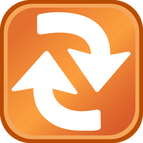OT12: A MOOC in Open Translation

The OT12 MOOC is now finished, but you can find out more about it here.
The OT12 MOOC, a Massive Open Online Course on Open Translation tools and practices, was a MOOC organised by the Department of Languages at the UK Open University. The MOOC took place from 15th October to 7 December 2012 (8 weeks).Although the forums are no longer open, the MOOC is still available here: http://labspace.open.ac.uk/course/view.php?name=OT12
We are also developing some resources based on our MOOC as independent Open Educational Resources, and they are available on Humbox, the repository of OER for the humanities. The link to the collection of OT resources is http://humbox.ac.uk/group/16
Project documents you might want to look at:
OT12 at the Higher Education Academy
OT12 evaluation strategy
OT12 summary
Publications:
Beaven, Tita; Comas-Quinn, Anna; Hauck, Mirjam; de los Arcos, Beatriz and Lewis, Timothy (2013). The Open Translation MOOC: creating online communities to transcend linguistic barriers. Journal of Interactive Media in Education article 18.
Available here: http://oro.open.ac.uk/39099/
Beaven, Tita; Comas-Quinn, Anna; Hauck, Mirjam; de los Arcos, Beatriz and Lewis, Timothy (forthcoming): MOOCs: striking the right balance between facilitation and self-determination, Journal of Online Learning and Teaching, 10 (1), pp.31-43. Available here: http://oro.open.ac.uk/40077/.
Other dissemination activities:
Southampton e-learning symposium (24- 25 January, 2013): "Of MOOCS and MOTS: new wine in an old bottle?"
Power point slides available here: https://www.llas.ac.uk/events/archive/6636
Recorded presentation available here: https://www.llas.ac.uk/video/6725
OER13: University of Nottingham, 26 - 27 March 2013: "The Open Translation MOOC: creating online communities to transcend linguistic barriers". Paper avaialble here: http://oro.open.ac.uk/37583/
e-learning Community, 13 March 2013, Open University, “The Open Translation MOOC”, as part of a thematic seminar on “MOOCs at the Open University: past, present and future”, webcast as part of Open Education Week (http://cloudworks.ac.uk/cloud/view/8043/references)
Recorded presentation available here: http://stadium.open.ac.uk/stadia/preview.php?s=31&whichevent=2157&option=both&record=0
- COIL 5th annual conference, 3-4 April 2013, SUNY/New York: "Come along for the ride! The OT12 MOOC - a collaborative approach to the creation of Open Educational Resources"
- WorldCALL conference, Glasgow 10-13 July 2013: "On the suitability of MOOCs for sustaining communities of language teachers and learners"
- Eurocall conference, Evora, Portugal 11-14 September 2013 : MOOCs: at the interface of self-determined and collaborative learning – the example of OT12”
What is a MOOC?
MOOCs are free online courses, open to all. Participants are distributed anywhere in the world, and the course connects large numbers of learners and instructors across a common field of knowledge. Whilst MOOCs provide weekly topics, activities, discussions and resources, learners actively engage in all aspects of the experience, sharing ideas in forums, undertaking collaborative or reflective activities, and using a variety of social media.
The OT12 MOOC, a Massive Open Online Course on Open Translation tools and practices, was a MOOC organised by the Department of Languages at the UK Open University. The MOOC took place from 15th October to 7 December 2012 (8 weeks).Although the forums are no longer open, the MOOC is still available here: http://labspace.open.ac.uk/course/view.php?name=OT12
We are also developing some resources based on our MOOC as independent Open Educational Resources, and they are available on Humbox, the repository of OER for the humanities. The link to the collection of OT resources is http://humbox.ac.uk/group/16
Project documents you might want to look at:
OT12 at the Higher Education Academy
OT12 evaluation strategy
OT12 summary
Publications:
Beaven, Tita; Comas-Quinn, Anna; Hauck, Mirjam; de los Arcos, Beatriz and Lewis, Timothy (2013). The Open Translation MOOC: creating online communities to transcend linguistic barriers. Journal of Interactive Media in Education article 18.
Available here: http://oro.open.ac.uk/39099/
Beaven, Tita; Comas-Quinn, Anna; Hauck, Mirjam; de los Arcos, Beatriz and Lewis, Timothy (forthcoming): MOOCs: striking the right balance between facilitation and self-determination, Journal of Online Learning and Teaching, 10 (1), pp.31-43. Available here: http://oro.open.ac.uk/40077/.
Other dissemination activities:
Southampton e-learning symposium (24- 25 January, 2013): "Of MOOCS and MOTS: new wine in an old bottle?"
Power point slides available here: https://www.llas.ac.uk/events/archive/6636
Recorded presentation available here: https://www.llas.ac.uk/video/6725
OER13: University of Nottingham, 26 - 27 March 2013: "The Open Translation MOOC: creating online communities to transcend linguistic barriers". Paper avaialble here: http://oro.open.ac.uk/37583/
e-learning Community, 13 March 2013, Open University, “The Open Translation MOOC”, as part of a thematic seminar on “MOOCs at the Open University: past, present and future”, webcast as part of Open Education Week (http://cloudworks.ac.uk/cloud/view/8043/references)
Recorded presentation available here: http://stadium.open.ac.uk/stadia/preview.php?s=31&whichevent=2157&option=both&record=0
- COIL 5th annual conference, 3-4 April 2013, SUNY/New York: "Come along for the ride! The OT12 MOOC - a collaborative approach to the creation of Open Educational Resources"
- WorldCALL conference, Glasgow 10-13 July 2013: "On the suitability of MOOCs for sustaining communities of language teachers and learners"
- Eurocall conference, Evora, Portugal 11-14 September 2013 : MOOCs: at the interface of self-determined and collaborative learning – the example of OT12”
What is a MOOC?
MOOCs are free online courses, open to all. Participants are distributed anywhere in the world, and the course connects large numbers of learners and instructors across a common field of knowledge. Whilst MOOCs provide weekly topics, activities, discussions and resources, learners actively engage in all aspects of the experience, sharing ideas in forums, undertaking collaborative or reflective activities, and using a variety of social media.
What are Open Translation tools and practices?
Open Translation practices rely on crowd sourcing, and are used for translating open resources such as TED talks and Wikipedia articles, and also in global blogging and citizen media projects such as Global Voices. There are many tools to help Open Translation practices, from Google translation tools to online dictionaries like Wordreference, or translation workflow tools like Transifex. We will explore some of these in the MOOC.